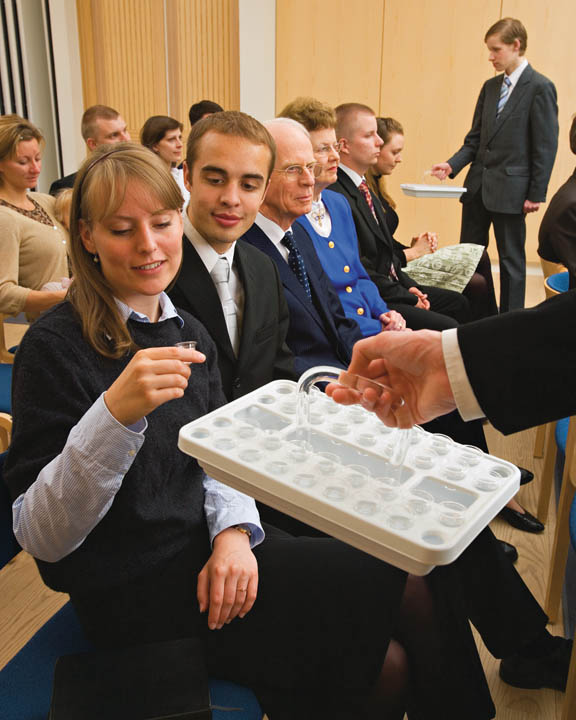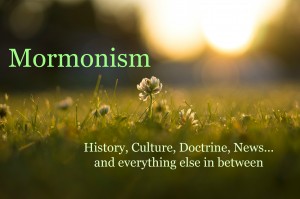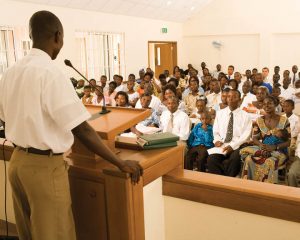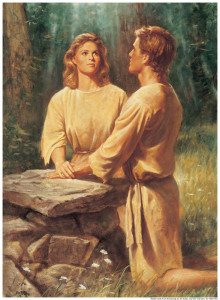In early articles in this series, we learned about Mormon.org, an introduction to Mormonism, and the Book of Mormon. Now you’re ready to really dig deep into the faith. Whether you’re doing so because you’re thinking about conversion, or whether you’re merely a person who loves to learn, it’s important to get this step just right. There are so many resources, but few that will really tell you what you need to know.
 The Mormons have another website you may want to explore. Mormon.org, covered in the first article, is aimed at people who are not Mormons. LDS.org, however, is aimed at people who are Mormon, although there is also more in-depth information for people who are not Mormon. LDS stands for Latter-day Saint. The full name of the Church is The Church of Jesus Christ of Latter-day Saints. Few religions offer the extraordinary amount of information about their faith that the Mormons offer. You’ll find articles on nearly all the teachings of the Church, with more being added regularly. There is also a new feature in which in-depth discussions of controversial Mormon topics, particularly relating to history, are discussed. They use resource material from professional historians both in and out of the Church. While little is new, it is now much easier to find all in one place. Serious students of Mormonism knew this material; for others it is new information.
The Mormons have another website you may want to explore. Mormon.org, covered in the first article, is aimed at people who are not Mormons. LDS.org, however, is aimed at people who are Mormon, although there is also more in-depth information for people who are not Mormon. LDS stands for Latter-day Saint. The full name of the Church is The Church of Jesus Christ of Latter-day Saints. Few religions offer the extraordinary amount of information about their faith that the Mormons offer. You’ll find articles on nearly all the teachings of the Church, with more being added regularly. There is also a new feature in which in-depth discussions of controversial Mormon topics, particularly relating to history, are discussed. They use resource material from professional historians both in and out of the Church. While little is new, it is now much easier to find all in one place. Serious students of Mormonism knew this material; for others it is new information.
In addition, you can read the actual Mormon lesson manuals, including teacher’s manuals, used by Mormons in their classes. You don’t have to register or download—you can simply open them up and start to read. This will tell you what the Mormons are learning every Sunday at Church. As a teacher, I can assure you these are the actual lessons used. I use one every week to prepare my lessons.
You can read Church news, explore inspirational messages, and even learn how to do your genealogy. You can watch videos of the semi-annual conferences offered to Mormons and anyone else who would like to listen in. The Church’s magazines are all free online.
What about Things by Non-Mormons?
 When I was first learning about Mormonism, I read all the books in my public library. Some were written by Mormons; some were not. I found something interesting about the things written by non-Mormons, though. I was raised in a family where I was taught to look for the ways people try to influence my thinking, to search the sources to find out if the information was complete, and to find out if the authors had a bias. I was raised to think. I expected, of course, that the Mormons would speak mostly positively of themselves, although I noticed they also weren’t shy about discussing things that were difficult to understand or even that were mistakes made by humans running the Church. The missionaries reminded me that the Church—what God taught and commanded—was perfect, but the people running it were just humans, and only Jesus Christ was ever perfect.
When I was first learning about Mormonism, I read all the books in my public library. Some were written by Mormons; some were not. I found something interesting about the things written by non-Mormons, though. I was raised in a family where I was taught to look for the ways people try to influence my thinking, to search the sources to find out if the information was complete, and to find out if the authors had a bias. I was raised to think. I expected, of course, that the Mormons would speak mostly positively of themselves, although I noticed they also weren’t shy about discussing things that were difficult to understand or even that were mistakes made by humans running the Church. The missionaries reminded me that the Church—what God taught and commanded—was perfect, but the people running it were just humans, and only Jesus Christ was ever perfect.
The other books, though, made me think of some of the hate propaganda I had seen when I volunteered for a political campaign. There, I had seen how the other candidate openly lied about the candidate I was working for. I read all the material for both sides and only the other side ever attacked, something that was important to me. I began to wonder if he spent all his time attacking the other candidate because he had nothing good to say about himself. By researching some of the negative claims, I saw that they were always untrue—half truths, open lies, or slanted material. When I was searching for a church to join, I ruled out churches that spent their time teaching negative classes about other faiths. I wanted a religion that had so much good to teach about itself it didn’t have time to offer classes on other religions.
The books turned me away by trying to manipulate me. I am fine with people presenting themselves as good, but I had a problem with them writing entire books designed to make me hate another group of people. I felt their own religions must not have much going for them if they had time for that. I might have been wrong—but they should have been better missionaries to me. I decided to go directly to the Mormons for information. I had done the same with each church I visited. I had asked their own people to tell me what they believed because that is how I would want others to learn about me, and Christ taught us to treat others the way we want to be treated.
How to Get a Perfect Answer to What is True
Mormons are the only people I met, when I was searching for God’s church, that told me to pray to know what was true. Everyone else just wanted me to trust them. The Mormons wanted me to trust God. The missionaries insisted I pray even if I told them I trusted them or already believed something. They wanted me to learn to trust God and to get his own answers on each question. They showed me James 1:5, which promises that if we lack wisdom—any sort of critical information—we can pray and ask God and He will tell us if we ask in faith.
Now, I have to tell you it took me a year to learn the Church was true. I couldn’t get an answer to that question at first, so I then asked if I should join the Church. God answered that one quickly. I assumed He wouldn’t tell me to join a false church, but I spent a year after my baptism working through the testimony process. That isn’t a bad thing.
Paced progress not only is acceptable to the Lord but also is recommended by Him. Divine declarations say: ‘Ye are little children and ye cannot bear all things now’ (D&C 50:40); ‘I will lead you along’ (D&C 78:18). Just as divine disclosure usually occurs line upon line, precept upon precept, here a little and there a little, so likewise we will achieve our spiritual progress gradually (see D&C 128:21; 98:12)” (Neal A. Maxwell, Men and Women of Christ [1991], 23).
Final Thoughts on Finding Out if Mormonism is True
There are thousands of sources on Mormonism, but in the end, if you believe in God, His opinion is the only one that matters. Read the Book of Mormon, study the websites, and then pray. Ask God to tell you what is true. Trust Him and come to your prayer ready to accept and ask on His answers, even if you hoped they would be different. God knows what is true. He is the only person, in the end, you should trust. The Bible is a wonderful book and is God’s own book, but it’s been through so many changes and translations and every church interprets it differently that we need more. We need God. He promised to answer your requests for help and He always keeps His promises. Anyone who tells you not to trust Him to answer you and to make it clear who the answer is coming from has a lack of trust in God that you don’t want to imitate. If you trust God, you have no reason not ask Him. He loves you too much to keep His truths a secret.
Do you want to find a real Mormon to talk to? The Mormons have missionaries who will be happy to answer your questions and to teach you more about their faith.
Visit a Mormon church service.
About Terrie Lynn Bittner
The late Terrie Lynn Bittner—beloved wife, mother, grandmother, and friend—was the author of two homeschooling books and numerous articles, including several that appeared in Latter-day Saint magazines. She became a member of the Church at the age of 17 and began sharing her faith online in 1992.







